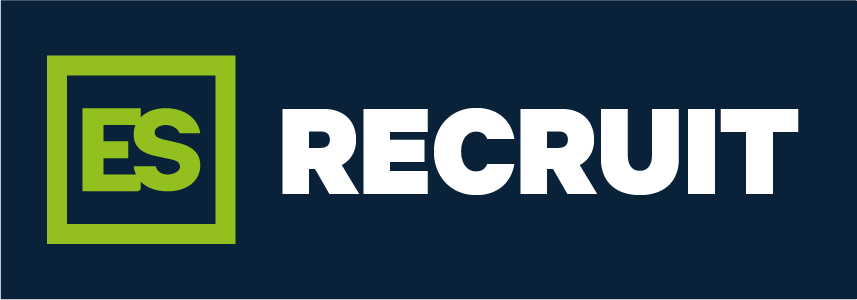You've made it through most of the interview, and on paper, you know you tick every single box on the job spec; you and the interviewer are getting on like a house on fire, and practising your S.T.A.R. method answers has paid dividends. It's in the bag, right?
Then comes the curveball question: "What's your expected salary?"
This is where it can get awkward. You don't want to low ball your self on the salary and leave money on the table. But at the same time, you don't want to suggest too high a figure and price yourself out of the role.
Don't panic when talking about salary and compensation; there are things that you can do to make sure that you don't sell yourself short and keep within the employers budget.
Here's what to consider.
1. Research salary trends in your market
No matter the position you are interviewing for or the level, the interview is your chance to show the hiring manager that you are worth the top end of their salary range. You want to leave them thinking, "That's the one; how do we get them to join our team?"
Your Salary expectation may well come up in a first stage interview, perhaps even in a telephone interview. This is why you should be prepared to answer the "expected salary" question from the second you hit apply. You're going to have to do your homework.
Some great sources for researching salaries are the Office for National Statistics website and Glassdoor. Often, former employees of the company will have been asked to leave salary details on Glassdoor as a part of their review, be aware that these figures aren't verified.
You should never discuss your salary expectations with a potential employer without doing your research first.
2. Don't be exact; give a range, not a number.
Whatever you do, you shouldn't be asking about salary when you send over your application or during an initial phone vetting. Bringing up this topic too early could send the message that you're more interested in the pay packet than the position.
However, this doesn't mean that the employer won't ask you this question.
Sometimes you might find that you are asked when filling in an application form. If this happens, you should give a range that you are comfortable with and not a specific figure. Try and avoid answers like negotiable as this could come across as evasive. If you have done your homework, then you will know what an acceptable salary range is.
If the question comes up in the initial vetting call, you can still give the interviewer a range. Say something like:
"From what I know about the job, I think I would be looking at somewhere in the range of £** - £**."
Phrasing your answer like this shows that you are flexible; employers appreciate this. Giving a range also leaves room to adjust the figures once you have learned more about the position during your interview.
3. Flip it on its head
During the early stages of the interview process, nothing is wrong with hedging your bets with a salary range. If an employer asks this question before talking to you about the job in great detail can't really expect much more.
But you do have an opportunity during the early stages to turn the question around. If your salary expectations come up during a vetting call or initial interview, you could always just say:
"I'd like to learn more about the expected duties and what the team's like, before talking about money. But may I ask what salary range you're considering for this position?"
Asked politely, you will show the employer that your priority is to discover if the role is something you are really looking for. A move that every employer will respect you for. This clever question also makes it really hard for them not to reveal their budget.
If you find that their salary range is in your ballpark or higher, thank them for sharing the information and let them know that the figure is in your expected range. If it comes in a little lower, say that it's at the lower end of what you're looking for, but you would still like to talk about the role.
Why? In a challenging, candidate-driven market, some companies may be willing to offer better pay to secure top talent. If you can demonstrate that you are just what the employer is looking for, you will be more likely to negotiate a closer salary figure to what you want.
If it turns out that you are miles apart and they are looking to pay a much lower range than what you are expecting, tell them and ask if the numbers would be adjusted for the right hire. If it's clear that you are miles apart and the gap can't be bridged, don't waste your time or theirs.
4. Now it's time to commit and give a number.
Sooner or later, you are going to have to commit to a number. By the second interview, or maybe third in longer hiring processes, you should have learned everything you need to know about the job, the people and the culture. At this point, when asked to give your expected salary, be ready with a number and not a range.
Think about everything that you have discovered during the application, vetting and interview process. Are the levels of responsibility and stress on par with your expectations? Is there anything not mentioned in the original job spec? And probably most importantly, what other benefits, rewards and bonus opportunities come with the compensation package?
Put all of that information together, and you shouldn't have any problem landing on a fair and acceptable figure. You may have given a salary range when it first came up, but you're not locked into that. Give your answer by briefly citing the points that you believe impact your salary expectations. If you can positively frame these, that's even better! For example:
"I recall the salary range you advised earlier, and I respect the fact that you have to work to a budget. But I'd like to suggest £** as the starting salary. This position's responsibilities are quite demanding, and we've both said I have all the required skills and qualifications. I believe that I can deliver the results you said you're looking for."
Be confident and polite, keep it positive and above all else…
5. Tell the truth
Never lie and misrepresent your experience, training and qualifications, or the impact you made in your last role. Don't lie on your CV, on your covering letter, in interviews or when discussing your salary expectations. At some point, it will come out, be it in a reference check, skills test, or you just don't perform.
The same is said for your current or previous salary; always try and direct the conversation to your skills and add value, not what you have been paid to another job. But, if you are directly asked about your current salary, tell the truth. If it comes out that you have inflated the numbers, you might find that the job offer soon disappears.
What next?
So you have the offer; you might want to go and read our blog "how to say yes the right way", but you should at least, if you need it, ask for a day or two to mull it over.
If you do decide to accept the offer, make sure that you ask about the start date. You should also ask for the request in writing to be 100% sure that there are no crossed wires regarding the job offer and your expectations. Finally, don't hand in your notice until you have signed and returned the job offer to your new employer.
If you are looking for a new role in Engineering and Manufacturing, upload your CV to: https://www.emp-sol.com/upload-your-cv









